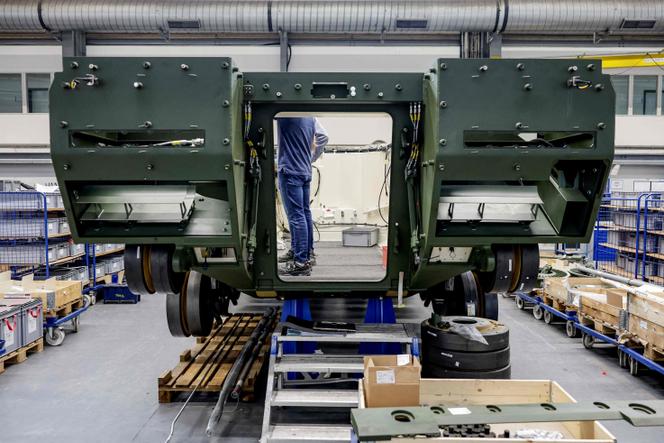


Armin Papperger, the CEO of Germany's leading arms group Rheinmetall, has become such a central figure in Germany's defense and arms and munitions deliveries to Ukraine that he is apparently being targeted by Moscow. According to a CNN report published on Thursday, July 11, Russia planned to assassinate the manager, along with other industry executives involved in supporting Kyiv. The American network cited sources close to American and Western intelligence services, who are said to have warned Berlin and Papperger.
Neither Rheinmetall nor Chancellor Olaf Scholz would comment on this story on Thursday evening. This would be an unprecedented threat for a CEO who is in the process of making his group a pivotal industrial player in the German and European defense industry. In early July, Rheinmetall concluded an alliance that further consolidated this ambition: the company joined forces with Italian aerospace and defense giant Leonardo in a joint venture to develop tanks for the Italian army while also setting its sights on European markets. The agreement came with a one-off 15-year order from Rome worth €20 billion, the largest in Rheinmetall's history. In exchange, 60% of the parts will come from Italy. In mid-June, Leonardo scrapped a cooperation agreement with the Franco-German company KNDS.
This was Rheinmetall's third exceptional order in just a few weeks. In late June, the Düsseldorf-based group signed a €8.5 billion contract with the German army to manufacture artillery ammunition. In early July, the company won another €3.5 billion contract for heavy military transport vehicles.
The group's development over the past three years has been unparalleled: after a 12% increase in turnover in 2023 to €7.2 billion, the 34,000-employee company expects to reach €10 billion in 2024. Its share price has jumped by almost 400% in five years. Since March 2023, it has been listed on the DAX, the index grouping the country's top 40 publicly listed companies, a spectacular performance for a company long considered bad company by investors and banks.
The Düsseldorf-based group is obviously reaping the benefits of the rearmament effort triggered by Russia's aggression on Ukraine. Germany, which was lagging far behind in this field, has now become one of its privileged customers. According to its estimates, Rheinmetall is set to secure a third of the €100 billion special fund for the army adopted by Berlin in February 2022, when Scholz announced Germany's defense policy's "Zeitenwende" ("historic turning point"). Rheinmetall is making a special effort to make ammunition, which Ukraine sorely lacks. Investments to the tune of €1.3 billion are planned to increase production capacity in several countries, including Australia, Romania, Hungary and above all Ukraine, where an armored vehicle plant is due to open in the coming weeks.
You have 55.7% of this article left to read. The rest is for subscribers only.
